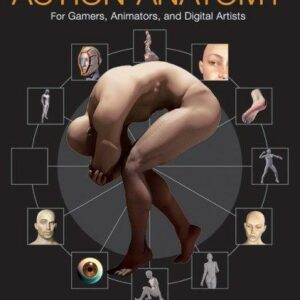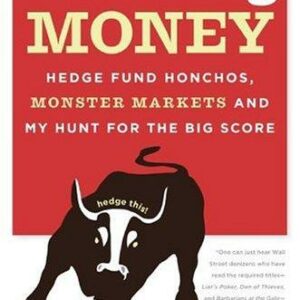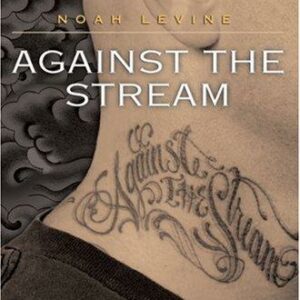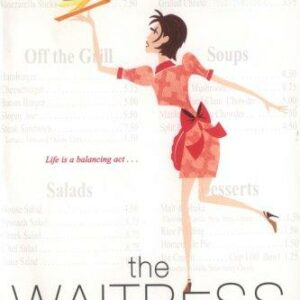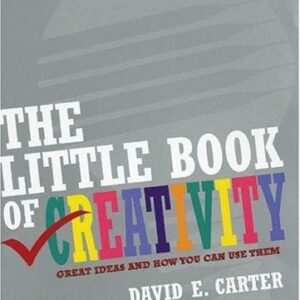Antisocial
$18.00
| Title | Range | Discount |
|---|---|---|
| Trade Discount | 5 + | 25% |
- Description
- Additional information
Description
“Trenchant and intelligent.” —The New York Times
As seen/heard on NPR, New Yorker Radio Hour, The New York Book Review Podcast, PBS Newshour, CNBC, and more.
A New York Times Book Review Editors’ Choice
A New York Times Notable Book of 2019
From a rising star at The New Yorker, a deeply immersive chronicle of how the optimistic entrepreneurs of Silicon Valley set out to create a free and democratic internet–and how the cynical propagandists of the alt-right exploited that freedom to propel the extreme into the mainstream.
For several years, Andrew Marantz, a New Yorker staff writer, has been embedded in two worlds. The first is the world of social-media entrepreneurs, who, acting out of naïvete and reckless ambition, upended all traditional means of receiving and transmitting information. The second is the world of the people he calls “the gate crashers”–the conspiracists, white supremacists, and nihilist trolls who have become experts at using social media to advance their corrosive agenda. Antisocial ranges broadly–from the first mass-printed books to the trending hashtags of the present; from secret gatherings of neo-Fascists to the White House press briefing room–and traces how the unthinkable becomes thinkable, and then how it becomes reality. Combining the keen narrative detail of Bill Buford’s Among the Thugs and the sweep of George Packer’s The Unwinding, Antisocial reveals how the boundaries between technology, media, and politics have been erased, resulting in a deeply broken informational landscape–the landscape in which we all now live. Marantz shows how alienated young people are led down the rabbit hole of online radicalization, and how fringe ideas spread–from anonymous corners of social media to cable TV to the President’s Twitter feed. Marantz also sits with the creators of social media as they start to reckon with the forces they’ve unleashed. Will they be able to solve the communication crisis they helped bring about, or are their interventions too little too late?
“Antisocial is . . . Marantz’s searching attempt to understand people he describes as truly deplorable without letting his moral compass get wrecked. . . . [Antisocial] is trenchant and intelligent; wry but not glib; humane but never indulgent.”
—Jennifer Szalai, The New York Times
“Imagine a world bereft of gates and uncrossable lines, with no discernable rules. That’s the Hadean landscape that has been painted expertly, in dark hues, by Andrew Marantz in his book Antisocial.”
—Kara Swisher, The New York Times Book Review
“By turns amusing and alarming. . . . Like an old Hunter S. Thompson report from the campaign trail, Antisocial is an entertaining read about a distressing subject.”
—San Francisco Chronicle
“Antisocial is an engrossing work of literary journalism. . . . A genuine first of its kind: ambitious, attuned to the novel features of social media, and written with enough detail and perspective to survey the subtle grain of a multifaceted movement. . . . Marantz is a master of this beat, and he excels at unwinding the subtle ironies, personal tics, and moments of vulnerability that reveal his subjects. . . . Antisocial is an engaging, relentlessly detailed, and observant study of the characters and personal motivations at play in the far right’s information pipeline.”
—The Nation
“Devastatingly relevant.”
—Vogue
“Marantz is a keen and witty observer of the spectacle, attuned to the tension between his desire to expose figures who are ‘helping the lunatic fringe become the lunatic mainstream’ and his knowledge that the act of exposing them grants those people’s own wish for mainstream attention.”
—New York Review of Books
“With force and elegance, New Yorker staff writer Marantz clearly documents social media’s empowerment of bigotry, propaganda, and right-wing extremism. Deeply reported.”
—The National Book Review
“Antisocial by Andrew Marantz is so humane and lucid and absorbing and good!! Everything in it is a nightmare and I couldn’t put it down.”
—Jia Tolentino, via Twitter
“A searching study of the right-wing gate-crashers who have overwhelmed social media in the Trump era. . . . Marantz’s travels into the camps of those right-wingers prove [Richard] Rorty correct, and the author clearly documents their use of social media to advance right-wing causes. . . . Invaluable political reportage in a time of crisis.”
—Kirkus Reviews (starred review)
“Marantz, a staff writer at the New Yorker, makes a timely and excellent debut. . . . Marantz doesn’t shy away from asking pointed questions or noting his subjects’ inconsistencies. This insightful and well-crafted book is a must-read account of how quickly the ideas of what’s acceptable public discourse can shift.”
—Publishers Weekly (starred review)
“[A] breathtaking, page-turning foray into the clash between Silicon Valley entrepreneurs and online extremists. . . . Marantz’s narrative is like going along for the ride in a foreign landscape, bouncing into the unknown on a bumpy road. . . . Marantz has a keen eye for character. . . . His intentions are serious, and ultimately Antisocial is an insightful look at two powerful forces shaping American society. . . . Whether you use social media or not, Antisocial is an important look at groups that are molding the nation.”
—BookPage
“Antisocial is at once funny and scary, antic and illuminating. It’s a must-read for anyone still struggling to understand the last election or hoping to make sense of the next one.”
—Elizabeth Kolbert, Pulitzer Prize-winning author of The Sixth Extinction
“Anyone who wants to know how Silicon Valley’s dream turned into democracy’s nightmare should read Antisocial, Andrew Marantz’s fascinating firsthand exploration of the trolls and nihilists who have hijacked the internet. This book puts contemporary politics in an alarming new light.”
—Jane Mayer, author of Dark Money
“A riveting exploration of the causes and consequences of our current societal nervous breakdown. Antisocial is absolutely essential reading to understand this moment, and it will stick in your brain long after you’ve devoured it.”
—Chris Hayes, author of A Colony in a Nation and host of All In with Chris Hayes
“We live in an era when current events are driven as much by scrolls of binary code as they are by matters in the physical world. With Antisocial, Andrew Marantz has crafted a map of this digital landscape, charted how it came to be, and pointed to its implications for all of us. This is an important book whose relevance will only grow over time.”
—Jelani Cobb, Ira A. Lipman Professor of Journalism at Columbia University and author of The Substance of Hope
“Antisocial is a close-up portrait of the new species of online shock artists who have taken over the American conversation. It is the most detailed and concrete account of how our politics have been changed by social media. This book is essential reading.”
—Jaron Lanier, interdisciplinary scientist at Microsoft Research and author of You Are Not a Gadget
“Marantz has produced an essential work of reporting—one that illuminates not only how our information landscape emerged, but also how it has become so corrupted and dangerous. If you want to comprehend the world in which we live, Antisocial is a book you must read.”
—David Grann, author of Killers of the Flower Moon
“Nowhere is the propagation of racist ideas more apparent today than on the social media platforms Silicon Valley created—but failed to govern. In Antisocial, Andrew Marantz crafted a complex, unsettling portrait of how blind techno-utopianism can lead to disaster. This is necessary reading if we intend to keep the next generation of social networks from becoming yet another American source of oppression.”
—Ibram X. Kendi, National Book Award-winning author of Stamped from the Beginning and How to Be an Antiracist
“This is a book about how the unthinkable becomes thinkable: how, in the Age of Trump, the alt-right, and outright fascists, have come to claim a central place in American discourse. This book scared the hell out of me, but every American could benefit from reading it. Andrew Marantz has written a chilling, deeply sourced, rivetingly told account of how a few fringe figures saw the potential of the internet as a vehicle for mass disinformation, and became prophets of the new fascism. Antisocial is political reporting at its finest.”
—Suketu Mehta, author of This Land Is Our LandAndrew Marantz is a staff writer at The New Yorker, where he has worked since 2011. His work has also appeared in Harper’s, New York, Mother Jones, the New York Times, and many other publications. A contributor to Radiolab and The New Yorker Radio Hour, he has spoken at TED and has been interviewed on CNN, MSNBC, NPR, and many other outlets.Chapter One
This Is America
The afternoon before Donald Trump was sworn in as president, Cassandra Fairbanks was at home, in a brick duplex twenty minutes north of Washington, D.C., getting dressed for the DeploraBall. She answered the door barefoot, wearing a Stars and Stripes manicure, a necklace made from a rifle casing, and a strapless red ball gown with a plunging neckline. “Sorry about the mess,” She said. “Everyone always crashes with me when they come to town.” A woman in her twenties and two men, both thirty, sat on a pleather couch, surrounded by a moat of camera equipment, staring silently at their phones.
Fairbanks connected a laptop to her TV and searched YouTube for Bob Dylan. “One of my idols,” she said. “One of the last true rebels.” She played a clip at random: a radio recording, from 1962, of Dylan performing a folk ballad called “The Death of Emmett Till.” Everyone looked up at the TV for a while, even though the image was only a still photograph. “‘Cause he was born a black-skinned boy, he was born to die,” Dylan sang.
“I’m so paranoid about my dress falling down,” Fairbanks said, hoisting up one side of her decolletage, then the other. A minute later, she added, “I need to finish my makeup,” and, dashed upstairs. She was already wearing a good amount of makeup, but not enough to be camera ready. The DeploraBall would be both a party and a media spectacle; there would be crews from various news outlets, and admirers posting group selfies to Instagram, and several social media demicelebrities, Fairbanks among them, who might at any moment start broadcasting to their followers on YouTube or Periscope or Facebook Live. She was dressing not for the people in the room but for the fans at home.
Fairbanks’s puppy, a Yorkie-Chihuahua mix, ran in tight, frantic circles, its paws clacking on the wooden floor. The living room was crowded with knickknacks-hanging lanterns, mirrors in brightly colored frames. A coffee table was strewn with canned Starbucks mochas and packs of American Spirits. The woman on the couch introduced herself as Emily Molli; the two men glanced up briefly, nodded in my general direction, then returned their attention to their phones. I asked their names, to be polite, although I recognized them from YouTube: Luke Rudkowski, lanky and towheaded, and Tim Pool, whose hair I had never seen because he always wore a beanie. Rudkowski and Pool were both one-man media brands, specializing in straight-to-camera punditry and jittery live footage from street demonstrations. (Molli did some camera work for Pool, but he edited, produced, and starred in the videos on his YouTube channel, which he called Timcasts.)
“I’m here to write about Cassandra,” I said. “I’m a journalist.”
“Oh, cool, I’m a journalist, too,” Rudkowski said.
“Yeah, me too,” Pool said.
Molli, now eyeing me more warily, exercised her right to remain silent.
“This kind of thing still lives today, in that ghost-robed Ku Klux Klan,” Bob Dylan sang.
Fairbanks came downstairs a few minutes later carrying a sequined clutch, a FREE ASSANGE tote bag, and a transparent poncho, “in case the protesters decide to throw paint on me.” Antifascist activists-Antifa, they called themselves-had threatened to shut down the event by any means necessary, including violence, and they had circulated a list of “high-value targets” with Fairbanks’s name on it. At other far-right events, she said, leftist agitators had thrown jars of urine and socks loaded with batteries. “Normally, I don’t mind run-ins with protesters,” she said. “But tonight I’m not in the fucking mood.”
Unlike the Liberty Ball and the Freedom Ball, official black-tie galas for Republican insiders and campaign bundlers, the DeploraBall was an independent pre-inauguration bash put on by and for the internet trolls and ultranationalists who had, as they liked to put it, “memed Donald Trump into the White House.” “It’s gonna be all the big names from MAGA Twitter,” one of them had told me, using the acronym for Trump’s campaign slogan, Make America Great Again. “All the people who joined forces online, all together in a room for the first time.” The event would take place at the National Press Club, in downtown D.C., for both symbolic and practical reasons: the Press Club, which held freedom of speech to be sacrosanct, was one of the few venues in town that would accept the organizers’ money.
The cohosts of the DeploraBall were Jack Posobiec, Jeff Giesea, and Mike Cernovich, three men whose occupations, like their politics, were impossible to describe in a single word. Posobiec was a wild-eyed navy veteran turned Twitter conspiracy theorist. Giesea, a wealthy entrepreneur who’d once worked for the taciturn libertarian billionaire Peter Thiel, had since become an under-the-table impact investor, funding a clandestine network of pro-Trump trolls. Cernovich, a self-employed lawyer and motivational blogger, had gained a bit of online notoriety for his boorish advice about fitness and pickup artistry. Prior to 2015, he took no interest in electoral politics. Then Donald Trump became the Republican front-runner, and Cernovich, recognizing a kindred spirit, began to amplify Trump’s brand of caustic, mendacious rhetoric.
On social media, as on the 1930s burlesque circuit, you’ve got to get a gimmick if you want to get ahead. Cernovich’s gimmick was to liken himself to a gorilla-“a powerful, dominant animal.” He wrote Gorilla Mindset, a self-help book for aspiring alpha males, and hawked it on Amazon; on his blog, he posted selfies of his hypertrophic upper body, along with a candid account of how he maintained it (green juice, anabolic steroids) and why (“You get more attention from the Bad Ass Bitches”).
A friend of Cernovich’s named Milo Yiannopoulos, one of the few social media demicelebrities who’d been able to convert online trolling into national fame, affected a very different persona. He fashioned himself a rakish renegade-“the most fabulous supervillain on the internet,” as he put it. A Cambridge dropout from Kent, Yiannopoulos was known less for his ideological positions, which were not cogent enough to withstand real scrutiny, than for his genteel British accent, his designer handbags, and his acid one-liners.
Fairbanks’s gimmick was as unoriginal as it was effective. “The only three things I believe in are the First Amendment, boobs, and WikiLeaks,” she once tweeted, with a link to a video in which she wore a low-cut WikiLeaks T-shirt. At the beginning of the video, she said, “This headline, and my shirt, are admittedly clickbait.” It worked: the video was viewed half a million times.
In addition to keeping up her various social media feeds, Fairbanks worked as a political correspondent for Sputnik, an international news agency owned and operated by the Russian government. “She’s written for us, too,” Rudkowski said. He was using the editorial “we” to refer to We Are Change, a blog and YouTube channel that he ran out of his apartment in southern Brooklyn.
Fairbanks, Rudkowski, and Pool didn’t agree on a well-developed policy agenda. What they shared was closer to an attitude-an instinctive aversion to anything mainstream. They often expressed this in terms of their antipathy to the establishment wings of the Democratic and Republican parties, but their guiding principles seemed more temperamental than political. Things they liked: energy, scrappiness, rebellion. Things they disliked: institutionalism, incrementalism, the status quo. If something could be described as an emanation of the Man, then they were against it.
“I’ve been into alternative stuff, fringe stuff, for as long as I can remember,” Fairbanks said. “I always felt like, whatever narrative they’re forcing down my throat, it’s not the whole story.” She was thirty-one. Before moving to the D.C. suburbs, she had traveled the country as a sound engineer, an animal-rights activist, and a roadie for punk bands. Her strapless ball gown left visible most of her sixteen tattoos. “I care more about free speech, including for Chelsea Manning and Julian Assange, than almost any other issue,” she said. “And now there’s censorship from all these other places, not just the government. Silicon Valley? Are you kidding me? People sitting in little rooms, deciding what information we can see? That’s not free speech, that’s fucking mind control.”
In the 2016 presidential primaries, she had supported Bernie Sanders. When she started writing for Rudkowski’s site, she said, “I was still a full-on Bernie bro.” At the time, she was also a frequent contributor to left-wing clickbait sites such as US Uncut and Addicting Info. “The job was: find a clip of Trump being an idiot,” she said. “Exaggerate it or take it out of context if you have to, then post it to social with a melodramatic headline and get a gazillion clicks. It was not very hard.”
In mid-2016, after Sanders dropped out and Hillary Clinton clinched the Democratic nomination, Fairbanks took another look at Trump. “I knew I could never vote for a Jeb Bush-type Republican, and I knew I could never vote for a Clinton,” she said. As a test, she posted “a few things on Twitter that were not completely anti-Trump, and people absolutely lost their shit. I got called a literal Nazi so many times, I eventually went, Fuck it, I’ll just go all in.” She stopped writing for leftist sites, and her pieces on We Are Change became avidly pro-Trump. “I always let her publish all of it,” Rudkowski said. “We support free thought.”
I sat on the couch next to Pool. “Who’d you say you were with?” he asked.
“The New Yorker,” I said. “It’s a magazine that-“
He cut me off. “I know what it is,” he said curtly.
Rudkowski grinned to himself, still looking down at his phone. “The New Yorker,” he said, in a mock-stentorian voice.
I tried to guess what, specifically, they were reacting to. In many people’s minds, The New Yorker represented monocled snobbery and Waspy wealth, and there was some truth to this-you don’t run Rolex ads unless there’s a chance of selling some Rolexes. Some people associated the magazine with bookish pretension, or with center-left politics; others fixated on the magazine’s corporate ownership; still others were struck by the length of the articles, or the assiduous fact-checking process, or the droll cartoons. For the people in this living room, I suspected, the mental caricature comprised none of these things in particular, which is to say all of them at once: I worked for the Man.
I felt a thump against my shin. It was the puppy, head-butting me to get my attention, then looking up at me with wide, expectant eyes.
“Her name is Wiki,” Fairbanks said.
“Short for WikiLeaks,” Pool said.
“As in, ‘It’s OK if Wiki leaks, as long as it’s in the right spot,'” Rudkowski said. He gestured toward the middle of the room, where there was a square absorbent pad with its borders taped to the floor.
“I’m trying to train her,” Fairbanks said, coaxing the dog toward the absorbent pad. Wikileaks sniffed the pad, circled it a few times, and then peed on it, wagging her tail. “Yay, Wiki!” Fairbanks said, gathering her dress in one hand and crouching to pet the puppy with the other. “What an incredibly good girl you are!”
She stepped outside, lit a cigarette, then changed her mind and stubbed it out. “My boss-Sputnik’s Washington bureau chief-wants me to write something about the party,” she said. “But I just want to relax, maybe have a drink.” In any case, she was friends with the event’s organizers, and with most of the other social media notables who would be in attendance. “If I need a quote from any of them tomorrow, I’ll just text them,” she said.
In the living room, Fairbanks switched from Bob Dylan to “Bradley Manning,” a song by the rap-rock band Flobots. Manning is transgender, and the song was recorded before she changed her name to Chelsea. “Normally I wouldn’t support anything that misgenders her, but it wasn’t intentional,” Fairbanks said. “Also, it’s just a super catchy song.” Manning was in federal prison for leaking army secrets; two days prior, Obama, in one of his final acts as president, had commuted Manning’s sentence. Asked about this, Fairbanks responded by making a jerking-off motion with her hand. “Too little, too late,” she said.
Around three in the afternoon, she turned off the TV and put on a pair of glittery gold high heels. She had volunteered to arrive at the Press Club a few hours early, to help set up. “I’ll get an Uber,” she said, fishing her phone out of her purse. I insisted on ordering a car for both of us instead. As a journalist, I explained, it would be unethical for me to accept any gifts from her, even a free ride. She narrowed her eyes and looked at me, trying to gauge whether I was joking. When it became clear that I wasn’t, she shrugged and put her phone away.
Fairbanks’s guests summoned a car of their own, then started stuffing their equipment into camera bags. Pool and Molli discussed their plans for the night:
“Let’s hit up the DeploraBall for a bit, see if it’s fun, then maybe stop by the Cambridge Analytica party.”
“You mean to film? Or just hang out?”
“We could shoot, sure, if something interesting’s happening.”
On her way out the door, Fairbanks dropped two lapel pins into her purse. One bore the logo of Comet Ping Pong, a pizzeria about five miles away. The other was a likeness of Pepe, a once-innocuous cartoon frog that had been adopted as a mascot by a growing online confederation of white nationalists, misogynists, belligerent nihilists, and edgy trolls. When the Press Club had agreed to host the DeploraBall, one of its few provisos was that no Pepe iconography was to be worn inside the venue. “Damn the Man,” Fairbanks said. “These so-called defenders of the First Amendment are gonna turn around and tell me what to do? Fuck that. This is America.”
Our car arrived, and she climbed into the backseat. The driver, an African American man in his twenties, tried to make small talk, asking why she was so dressed up. He met her eyes in the rearview mirror as he waited for her answer. She fidgeted in her seat. “Going to a ball,” she said, diverting her attention to her phone.
“Come have drinks with the biggest names of the season,” an online invitation to the DeploraBall read, followed by a list, in bold type, of a dozen VIPs who would be in attendance. Some of them, such as Fairbanks and a YouTube commentator named Lauren Southern, were young independents who had never backed any major-party politician, much less a Republican, before Trump. Others, such as the tabloid blogger Jim Hoft and the amateur podcaster Bill Mitchell, were baby boomers and longtime conservatives who supported every one of TrumpÕs positions, even those that clashed with conservative orthodoxy (or with TrumpÕs other positions). One of the VIPs, an ageless political flack named Roger Stone, had lurked near the periphery of Republican politics for decades, and was called a Òdirty tricksterÓ by everyone, including himself. Another name on the list was Alex Jones, a perspiring doomsayer who had made millions of dollars by transferring his apocalyptic tirades from public-access cable to the open internet. For more than two decades, Jones had treated almost all politicians with vivid disdain; then, in 2015, he changed his mind and went all in for Trump.US
Additional information
| Weight | 11.2 oz |
|---|---|
| Dimensions | 0.8500 × 5.5000 × 8.4400 in |
| Imprint | |
| ISBN-13 | |
| Author | |
| Audience | |
| BISAC | |
| Subjects | conspiracy theorists, White supremacists, The New Yorker, The New York Times, The Gate Crashers by Andrew Marantz, The Gate Crashers, Steve Sailer, New Yorker writer, Mike Cernovich, deploraball, anti-social, Buzzfeed, Breitbart, Books about the alt-right, Books about the 2016 election, Andrew Marantz, Alt-right, antisocial, anti social, facebook, trump, alt right, social, donald trump, fake news, nonfiction, political science, social media, trolls, politics, twitter, POL065000, memes, SOC052000, ideology, new yorker, anti-social book, 2016 election |
| Format |


